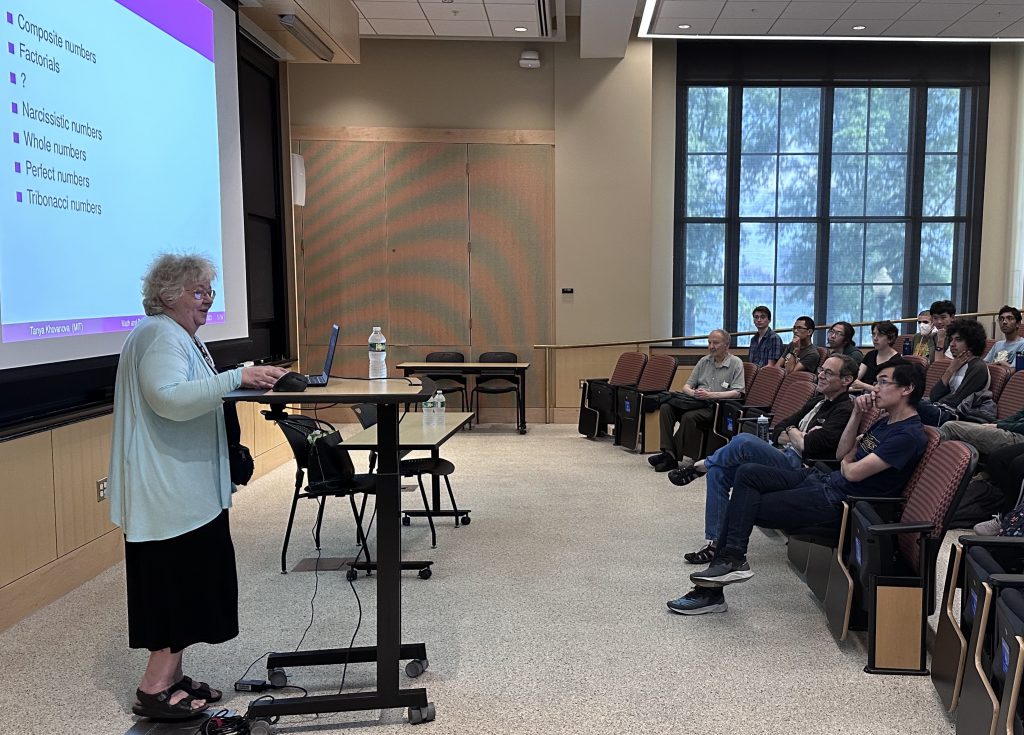We are excited to host such a diverse and intellectually challenging mathematics community limited only by our collective curiosity and imagination. We also recognize that some of our members struggle to feel welcome; our goal is to encourage open dialogue to create an inclusive atmosphere for innovation and excellence.
Members of our community come from a variety of racial, ethnic, indigenous, religious, and socioeconomic backgrounds. We are LGBTQIA+. We are women and men and non-binary. We have families and pets. We are veterans. We are immigrants. We possess a range of physical abilities. We are first-generation students. We are young and we are experienced. We are MIT Math.







